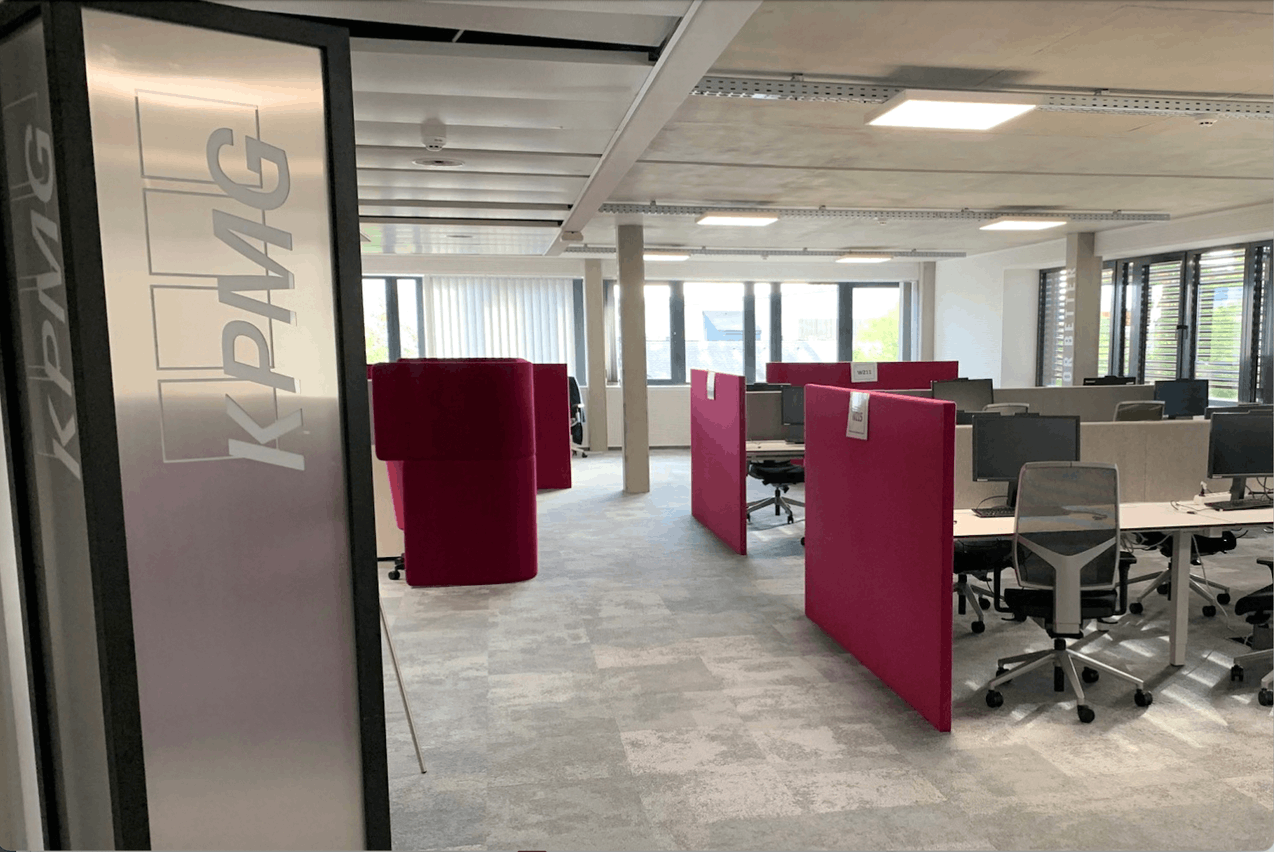And that’s three. KPMG has found a new satellite office near the German border in Potaschberg. The 80-seat office is scheduled to open in January 2024. The Big Four firm already had two, one on the French border and one on the German border. PwC has seven. Deloitte claims one. EY has none.
“It’s not a miracle solution, but an alternative worth considering,” says headhunter . “Nine times out of ten, I am asked about the degree of flexibility” of the company seeking to recruit. “A question I was rarely asked” before covid. Satellite offices are then “one of the ways to” promote work-life balance.
“It reduces traffic jams, you arrive less stressed, less late, and you are more productive,” she says. It is still important, however, to plan several days a week at the headquarters--ideally two, according to the expert--so as “not to lose the company culture and team spirit.”
It’s the values and benefits that will make the difference.
Does a satellite office represent a competitive advantage for a Big Four company over one without? “I think so. A fund auditor in the Big Four will do the same job. Let’s not kid ourselves, the salaries are the same. It’s the values and benefits that make the difference. Company car, lunch vouchers... 95% of them have the same thing. If someone says ‘with us you don't have to face traffic jams,’ the candidates will be sensitive to that.”
Half empty offices on average
KPMG sees this as a “way of offering the widest possible range” to its employees, explains its managing partner, .
This is despite the fact that its first two satellite offices are not always full. The 55 seats in Windhof, near the Belgian border, are on average 50% occupied and the 120 seats in Belval, on the French side, 40%.
The future does not lie in a fragmented model in terms of office organisation.
Initially reserved for border workers when they were inaugurated at the start of the 2022 school year, these offices were then opened to residents. This has led to an increase of “8% to 10% in occupancy rates” to reach the stated levels.
“For the time being, we are not planning to reduce their number,” says Capocci. “This has enabled us to realise that the future is not going to be a fragmented model in terms of office organisation. That a welcoming headquarters allows for integration.”
Two days a week at headquarters
He explains their occupancy by half by the “desire to meet colleagues.” But also by the fact that the satellite offices are not located as close as possible to where people live. A border worker from Thionville, for example, will not take less time to go to Belval than to Kirchberg.
Office reservations are made online. “Everyone has access to it. We have put in place the IT security and data protection systems” that allow this.
Employees must come to the headquarters, which has 1,106 places, at least two days a week. Of the 1,755 employees, 974 reside in the grand duchy, 333 in France, 287 in Germany and 161 in Belgium.
Read also
Seven offices and still looking for new ones
PwC opened its first satellite office long before covid at the end of 2018 in Wemperhardt (27 places). In 2019, Oberpallen (60 seats), Wecker (30 seats) and Belval (60 seats) followed. The last three date from 2022: 60 places in , 80 in Dudelange and 60 in Pétange. Occupancy rates vary from one to another: 50% for the first, almost 100% for the second, Mondorf and Dudelange, a ‘high utilisation’ for Pétange and less than 50% for Wecker and Belval, although precise figures are not given.
Despite this, “we continue to look for them, mainly for French border workers who are the most numerous (1,051 out of 3,385 employees) and suffer the most from travel time constraints.” But also at the German (203 employees) and Belgian (438 employees) borders.
They also have 2,900 places at their headquarters. Here or at the border, one has to book their place online. The rule is to come “at least once a week to one of our offices,” even if Dominique Laurent, managing director, notes in practice “a presence of three to four days at the headquarters.”
Deloitte discreet, “outside strategy” for EY
The same goes for functions that require a daily presence at headquarters (receptionist, human resources). “Each office is equipped with the same access control and physical and IT security technologies.”
Deloitte, for its part, refused Paperjam’s requests for an interview. The company with 2,230 employees only explained that it was “considering satellite offices as one of the options.” When asked about its Belval site, which the Big Four communicated about in 2018 and 2019 as being planned to accommodate 250 employees dedicated to the financial industry, the company replies that there is now a real satellite office. When did it become flexible? How many employees from other departments is it open to? No details could be provided.
For EY, “opening satellite offices is not part of our strategy at the moment. We attach great importance to flexibility and teleworking, but we consider that knowledge transfer and collaboration between teams is facilitated by a common presence in our offices.”
This story was first published in French on . It has been translated and edited for Delano.


